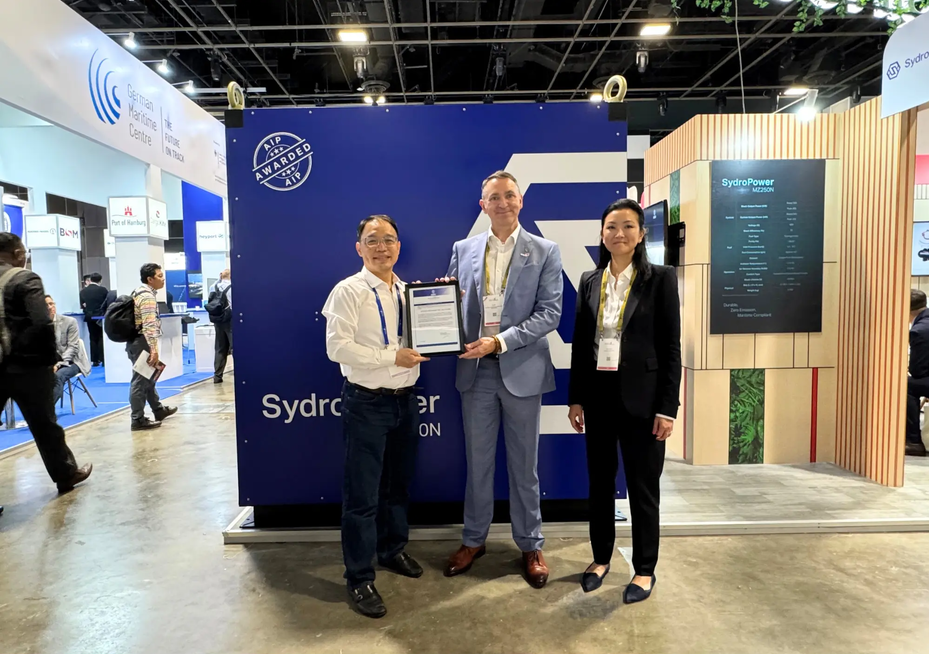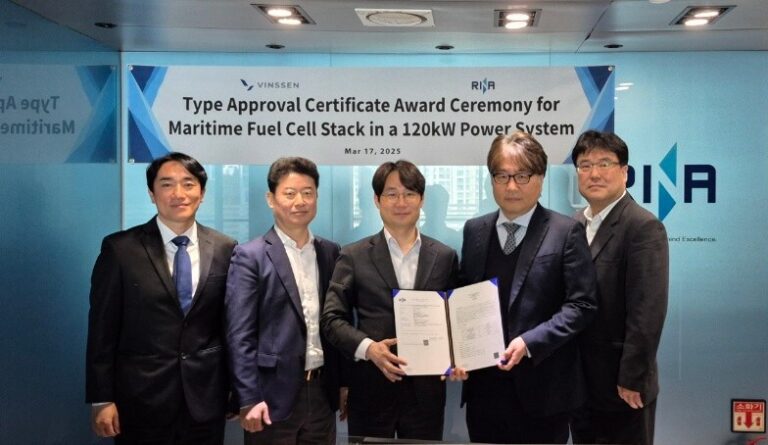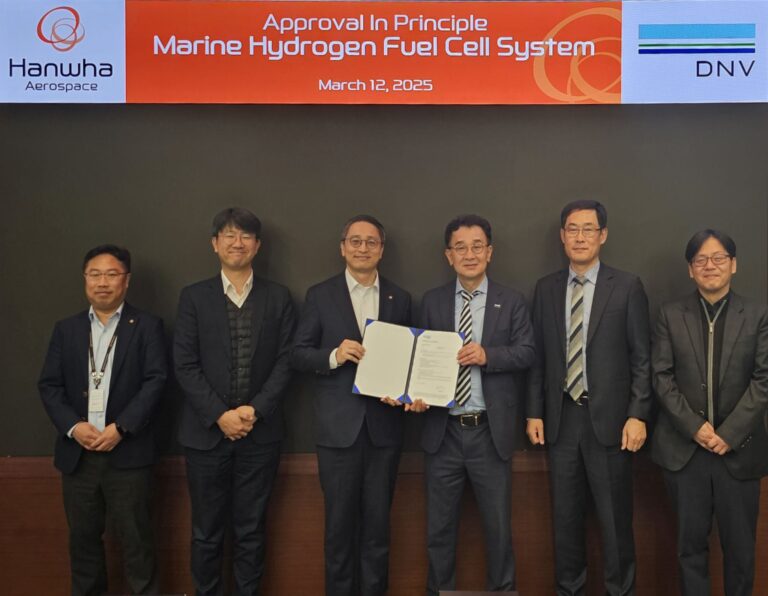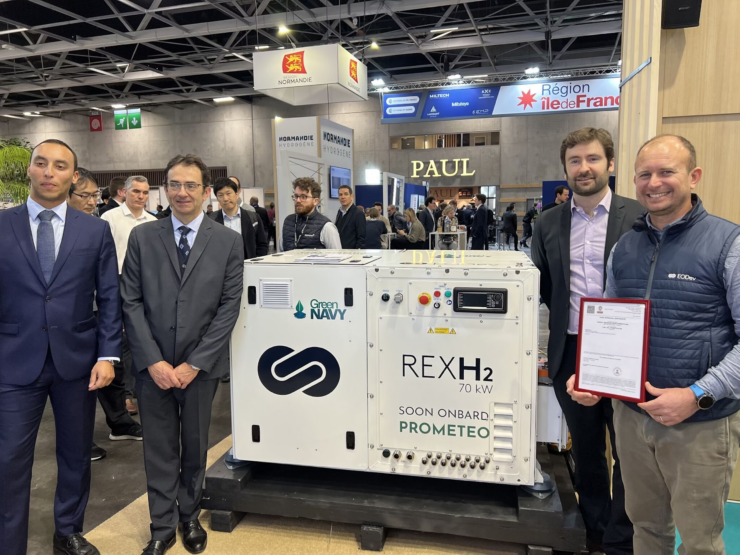Another maritime fuel cell supplier achieves Approval in Principle as a first step toward commercialization for maritime applications. The recent flurry of announcements regarding fuel cell approvals is a good sign. More competition is required in this space.
A Milestone for Maritime Decarbonization
Singapore-based innovator Sydrogen Energy has achieved a significant breakthrough, securing crucial certification milestones for its maritime hydrogen fuel cell technology. Sydrogen’s Maritime Fuel Cell, the SydroPOWER MZ250N, recently received a Basic Design Assessment (BDA) Statement and Approval in Principle (AiP)from Bureau Veritas Marine & Offshore (BV). The statements mark a vital step toward commercializing advanced hydrogen-based energy solutions in maritime operations.

Advanced Fuel Cell Technology
The SydroPOWER MZ250N incorporates proven automotive hydrogen fuel cell technology from Sydrogen’s partner, Shanghai Hydrogen Propulsion Technology (SHPT). Designed specifically for maritime environments, this fuel cell system promises reliable and efficient power for various applications, including commercial vessels and offshore platforms. The system significantly reduces greenhouse gas emissions and pollutants, contributing directly to global climate goals and cleaner oceans.
Rigorous Certification and Validation
The BDA Statement from Bureau Veritas confirms that the SydroPOWER MZ250N meets stringent safety, performance, and reliability standards. This rigorous evaluation process reinforces Sydrogen’s commitment to excellence and highlights the reliability of their technology. This certification demonstrates the industry’s increasing acceptance and readiness for hydrogen-based maritime solutions.
Industry Leaders Voice Support
Teo Eng Dih, Chief Executive of the Maritime and Port Authority of Singapore, praised Sydrogen’s milestone, stating, “We welcome the efforts by Sydrogen and its partners in advancing hydrogen fuel cell technology for maritime use. The Basic Design Assessment is an encouraging milestone that reflects momentum across the industry to explore cleaner energy solutions.”
Gian Yi-Hsen, CEO of Sydrogen, emphasized the impact of this achievement, noting, “Receiving this Basic Design Assessment Statement from Bureau Veritas marks a transformative moment for Sydrogen Energy. This achievement is not just a validation of our technology’s safety and reliability; it represents a significant step forward in our mission to revolutionize maritime energy solutions.”
Moving Forward with Sustainable Maritime Energy
With the certification milestone achieved, Sydrogen is now positioned to accelerate deployment of the SydroPOWER MZ250N. The company is actively engaging with potential customers and industry partners to launch pilot projects and commercial installations. These efforts will help drive maritime operations toward a sustainable, zero-emission future.
This certification highlights not only Sydrogen’s innovative approach but also underscores the broader maritime industry’s commitment to sustainable and environmentally friendly solutions.


